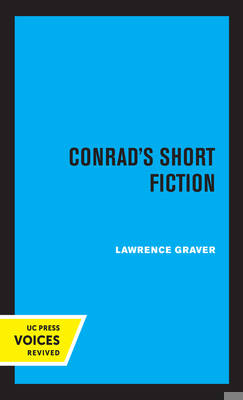
Je cadeautjes zeker op tijd in huis hebben voor de feestdagen? Kom langs in onze winkels en vind het perfecte geschenk!
- Afhalen na 1 uur in een winkel met voorraad
- Gratis thuislevering in België vanaf € 30
- Ruim aanbod met 7 miljoen producten
Je cadeautjes zeker op tijd in huis hebben voor de feestdagen? Kom langs in onze winkels en vind het perfecte geschenk!
- Afhalen na 1 uur in een winkel met voorraad
- Gratis thuislevering in België vanaf € 30
- Ruim aanbod met 7 miljoen producten
Zoeken
Omschrijving
In recent years, critics and readers alike have increasingly recognized the unique brilliance of Joseph Conrad's short fiction, elevating it to the pinnacle of his artistic achievements. Marvin Mudrick, in his provocative analysis, even argues that Conrad's finest works are his novellas, suggesting that their compact scope perfectly channels his intense moral and psychological explorations. While Mudrick's view might challenge the centrality of Conrad's renowned novels like Lord Jim or Nostromo, it highlights the enduring power of works such as Typhoon, The Shadow-Line, and Heart of Darkness, which encapsulate Conrad's themes with unparalleled clarity and force. This book delves into Conrad's mastery of short fiction, examining his evolution as a writer and the creative tensions he navigated. Conrad's "long-short" stories, as he termed them, straddle the line between compact storytelling and the expansive narrative techniques of the novel. With works often ranging around 30,000 to 40,000 words--his ideal length for achieving narrative depth and realism--Conrad forged a form that resonated deeply with his artistic sensibilities, even if it challenged market conventions. By exploring the thematic and structural intricacies of his short fiction, this study reveals how Conrad's tales reflect his quest for a balance between innovation, moral complexity, and reader engagement. This title is part of UC Press's Voices Revived program, which commemorates University of California Press's mission to seek out and cultivate the brightest minds and give them voice, reach, and impact. Drawing on a backlist dating to 1893, Voices Revived makes high-quality, peer-reviewed scholarship accessible once again using print-on-demand technology. This title was originally published in 1969.
Specificaties
Betrokkenen
- Auteur(s):
- Uitgeverij:
Inhoud
- Aantal bladzijden:
- 254
- Taal:
- Engels
Eigenschappen
- Productcode (EAN):
- 9780520338074
- Verschijningsdatum:
- 25/06/2021
- Uitvoering:
- Paperback
- Formaat:
- Trade paperback (VS)
- Afmetingen:
- 140 mm x 216 mm
- Gewicht:
- 322 g

Alleen bij Standaard Boekhandel
+ 135 punten op je klantenkaart van Standaard Boekhandel
Beoordelingen
We publiceren alleen reviews die voldoen aan de voorwaarden voor reviews. Bekijk onze voorwaarden voor reviews.









